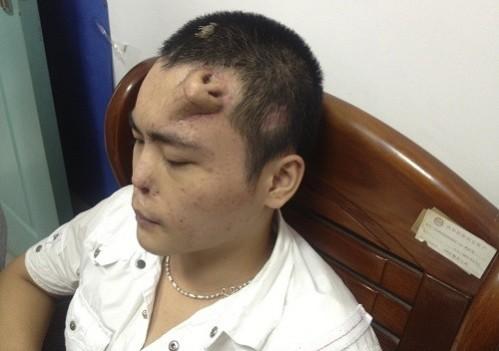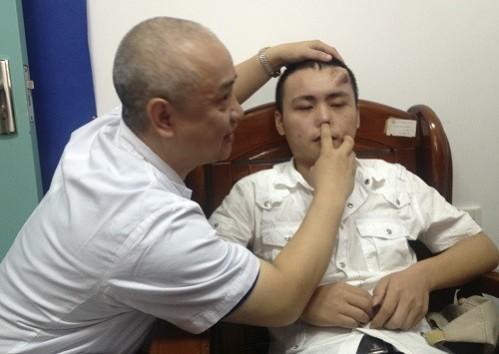
A 22-year-old Chinese man has become the first person in the world to grow a nose on his forehead.
A team of surgeons from a hospital in Fuzhou, China, has been credited with creating the artificial nose for the young man, Xiaolian, after he suffered a serious injury to the nose in a car accident last year.
Xiaolian, neglected his nasal injury for several months as he couldn't afford the huge cost involved in plastic surgery.
But the decision only worsened his condition. Surgeons found that the infection had damaged the cartilage of the nose. They couldn't find any other solution than creating a new nose.
During the procedure, surgeons placed a skin tissue expander onto Xiaolian's forehead and gave it the shape of a nose. A new cartilage from the patient's ribs was planted in the new nose, New York Post reported.

The nine-months-old nose has grown to a good shape and is fully ready for transplant surgery. "We have gone through the hardest step and now it is not difficult to carry out transplant surgery," Guo Zhihui, Director of Plastic Surgery Department of Xiehe Hospital Affiliated to Fujian Medical University, told New York post.
The news has sparked a debate across the globe, both among health experts and common public.
Surgeons said that the procedure is a common technique used in plastic surgery. "I would call it a different take on a principles that we commonly use in reconstruction," Dr David Cangello, an attending plastic surgeon at Lenox Hill Hospital and Manhattan, Eye Ear and Throat Hospital in New York, told Livescience.

















